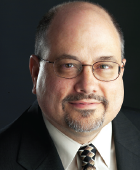AAPL Session to Focus on Less Discussed Forensic Topics
Abstract
Addressing the darker aspects of forensic psychiatry is hoped to improve the welfare of people in the criminal justice system as well as forensic professionals.
During APA’s 2018 Annual Meeting, five panelists from the American Academy of Psychiatry and the Law (AAPL) will explore major but often overlooked topics in forensic psychiatry in the symposium “Bringing Light to Darkness: Seldom-Examined Topics in Forensic Psychiatry.”

Michael A. Norko, M.D., M.A., is the immediate past president of the American Academy of Psychiatry and the Law and the director of forensic services for the Connecticut Department of Mental Health and Addiction Services.
Each of the presentations will be related to an aspect of forensic work that tends to elicit avoidance. In that avoidance may be found a lost opportunity for building well-being of one type or another. The panelists will describe these areas of concern, their effects on participants in forensic processes, and the possibilities for innovative approaches to promote enhanced well-being for practitioners and service users alike.
The first area that will be explored is the damage that can be done by the justice system, precisely in its search for justice. After many years of practicing law, James Kimmel Jr., J.D., concluded that the pursuit of justice and the pursuit of happiness were irreconcilable, producing profound suffering. He came to appreciate that the belief that the pursuit of justice leads to happiness is a misguided notion afflicting all humanity. Seeking justice to avenge perceived wrongs, he argues, is the universal motive underlying most acts of aggression. He discovered that neuroscience has linked justice seeking with the neural circuitry of addiction. This led him to develop his “Nonjustice System”—a nine-step process helping victims control the desire for justice. Kimmel will describe how he came to these conclusions and developed the “Nonjustice System” (see nonjustice.org). Michael Rowe, Ph.D., a mental health researcher at Yale University known for his work on citizenship investigations and advocacy, will describe pilot studies of the effectiveness of this nonjustice methodology that have been conducted by members of Yale’s Program for Recovery and Community Health. Rowe will review the results of these studies and future directions for this research.
The second topic to be explored is that of vicarious trauma in forensic mental health professionals. This subject has been described in the forensic literature but nowhere more poignantly than the public press coverage of the story of John Bradford, M.D., of Ottawa. In 2013, Bradford, a seasoned forensic psychiatrist, expert in sexual offending behaviors, and past president of AAPL, courageously disclosed his experiences of vicarious trauma as a forensic examiner to a news reporter for The Ottowa Citizen. Bradford will discuss the case that led to his personal experience of PTSD and depression. His public addresses have opened avenues for assistance for judges, jury members, first responders, and health care workers. He will focus on the latest research on treatment rehabilitation for this occupational hazard and offer suggestions to mental health professionals to help themselves and others at risk for this type of trauma.
I will describe a disturbing and evolving case of patient abuse in an accredited and respected forensic treatment facility in Connecticut and its significant impact on patients and staff, the wider mental health system, and the public. I will focus on the multifaceted response to the revelation of this abuse and the initiatives that were begun to attempt to cope with trauma and rebuild and enhance well-being and resilience within the hospital community. The hidden nature of secure treatment facilities is an obstacle to public understanding and assistance with the work, especially in the efforts to respond to such a devastating crisis. The situation emphasizes for me the importance of the work of documentary filmmaker John Kastner, who has produced three award-winning films based on his interviews with patients and staff of the Brockville Psychiatric Center, a maximum-security treatment facility in Ottawa. Kastner has effectively contended with this dark aspect of forensic psychiatry, particularly in his film “Out of Mind, Out of Sight,” and in his written public messages.
To end the symposium, panelists will emphasize the growing optimism of innovation in forensic practice by exploring the subject of recovery in forensic mental health care. Historically, the forensic treatment system has faced conceptual obstacles in responding to the recovery movement in mental health care, as recovery principles and the need for security and safety were seen as antithetical.
For example, recovery promotes autonomy and individual choice, while secure forensic treatment entails enforced custody and social exclusion from a risk-averse society—another illustration of the hiddenness described by Kastner. Recent theoretical and clinical work, however, suggests that these goals need not be conflicting. AAPL has formed a new Committee on Forensic Recovery, chaired by Alexander Simpson, M.B., Ch.B., chief of forensic psychiatry at the Centre for Addiction and Mental Health in Toronto. Simpson will describe the literature and emerging interventions that can facilitate the union of recovery principles with forensic psychiatric treatment, including the use of forensic peer support specialists.
It is our hope that this symposium will reveal and invite exploration of each of these shadow areas of forensic practice, with innovative ideas and practices aimed at building and sustaining well-being of both practitioners and service users. ■
“Bringing Light to Darkness: Seldom-Examined Topics in Forensic Psychiatry” will be held Saturday, May 5, from 1 p.m. to 4 p.m. Check the APA Meetings App for location.



